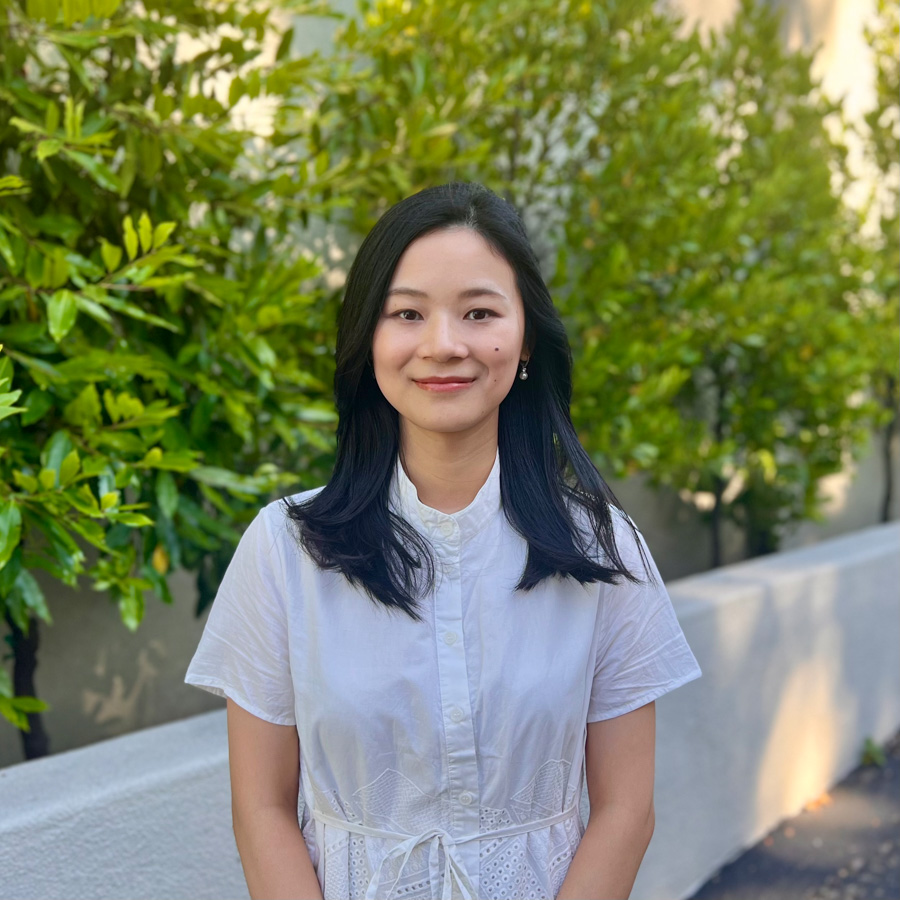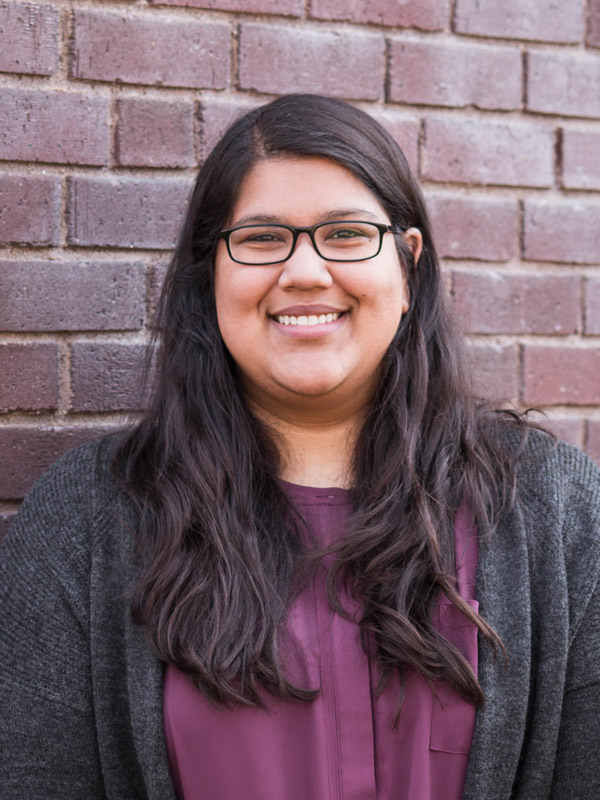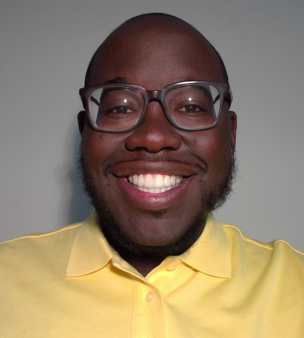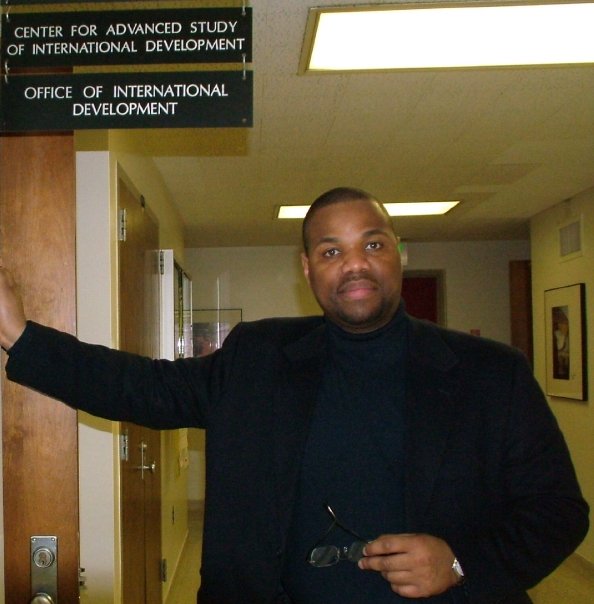
Qin Li (Ph.D., The Ohio State University) is a Preparing Future Faculty for Inclusive Excellence (PFFIE) Postdoctoral Fellow for 2024-2026. She examines both 1) the nature of (online) information landscape and 2) how both the information and social environment impact political beliefs. To these ends, she frequently works with various kinds of data (e.g., panel surveys, digital trace data) and uses quantitative and computational methods. In her dissertation, she designed dyadic and triadic experiments to examine how trust and network closure can impact factual beliefs and (mis)information sharing.
Website:
Li, Q., Bond, R. M., & Garrett, R. K. (2023). Misperceptions in Sociopolitical Context: Belief Sensitivity’s Relationship with Battleground State Status and Partisan Segregation. Journal of Communication, 73(5), p.439–451.
Li, Q., Bond, R. M., & Garrett, R. K. (2023). Misperceptions in Sociopolitical Context: Belief Sensitivity’s Relationship with Battleground State Status and Partisan Segregation. Journal of Communication, 73(5), p.439–451.
Li, Y., Wang, Z., & Li, Q. (2023). Presidential Communication and Its Relationship with Partisan Perceptions and Behaviors During the COVID-19 Pandemic: A Longitudinal Examination. Human Communication Research, 49(4), p.433-447.
Nisbet, E. C., Mortenson, C., & Li, Q. (2021). The presumed influence of election misinformation on others reduces our own satisfaction with democracy. Harvard Kennedy School (HKS) Misinformation Review, 1(7).

Ph.D. Ohio University
M.A. Texas State University
B.S. Missouri State University
Dr. Caroline Waldbuesser (Ph.D., Ohio University) is the Course Director for Public Speaking (COMM 1200). She is originally from Jasper, Missouri. She completed her BS in communication at Missouri State University (2013), MA in communication at Texas State University (2015), and Ph.D. in communication focusing on relating and organization at Ohio University (2019). Her research focuses on emotions in instructional contexts, such as the college classroom. Further, she also looks at teacher experiences including mental health and body image.
Through her research and teaching, she seeks to understand how to improve pedagogy in the college classroom. She focuses on understanding how the personal experiences and lives of teachers can enhance their pedagogy and teaching in the classroom. Further, she focuses on how teachers can focus on their own mental health while attending to student needs in the classroom. Currently, her research has been published in journals surrounding education research such as Communication Education, Communication Teacher, The Basic Course Annual, Educational Research Quarterly, and College Teaching. She also has publications in various communication journals and handbooks.
Communication 1200
Communication 3575
Waldbuesser, C., & Cuellar, J. M. (2023). Is there anything I can say to get you to stay?”: Sensemaking in an online fan subreddit. Western Journal of Communication, 00, 1- 28. https://doi.org/10.1080/10570314.2023.2169051
Waldbuesser, C. & van Raalte, L. J. (2023). Teacher Affection and Immediacy in College Classrooms: Predicting Student Engagement. Educational Research Quarterly, 47(1).
Waldbuesser, C., Rubinsky, V., & Titsworth, B. S. (2021). Take a deep breath and keep going: Teacher emotional labor and emotional regulation. Communication Education, 70, 1-18. https://doi.org/10.1080/03634523.2021.1936097

Hsin-I Sydney Yueh (Ph.D., University of Iowa) is Associate Teaching Professor in the Department of Communication at the University of Missouri. Her research examines how culture shapes communication in various groups and communities. A major focus of her research is the role of language in intercultural communication. She attends to how cultural factors and power structure influence individuals to compose, perform, and respond to persuasive messages. Her book Identity Politics and Popular Culture in Taiwan: A Sajiao Generation (Lexington, 2016) received the Outstanding Book Award for the International and Intercultural Communication Division at the 2018 National Communication Association (NCA) convention. The earlier version of this book was awarded the Outstanding Dissertation Award in the Language and Social Interaction Division at the 2013 NCA conference. Yueh takes both interpretive and critical approaches to scholarship. Yueh’s research has been published in NCA journals, such as Journal of International and Intercultural Communication, Communication and Critical/Cultural Studies, and Critical Studies of Media Communication, in addition to specialty journals focusing on East Asia, China, and Taiwan. She has also presented her work and received top paper awards at a number of regional and national conferences.
Yueh was the recipient of a Taiwan Fellowship in 2021, which allowed her to observe politicians’ persuasive rhetoric in Taiwan’s election culture. In addition to her memberships for several US-based communication associations, she served on the board of directors (2020–2023) for North American Taiwan Studies Association (NATSA) to promote Taiwan studies in North America. She has served as an Associate Editor of the East Asian Journal of Popular Culture since 2024.
COMM 3422 Communication Research Methods
COMM 4474 Theory and Research in Persuasion
COMM 4940 Internship
*Indicates graduate student author
Books
Cheng, H.-I., & Yueh, H.-I. S. (Eds.) (2023). Resistance in the era of nationalisms: Performing identities in Taiwan and Hong Kong. East Lansing, MI: Michigan State University Press.
Yueh, H.-I. S. (2017). Identity politics and popular culture in Taiwan: A sajiao generation. Lanham, MD: Lexington Books.
Peer Reviewed Journals
Yueh, H.-I S., & Pariyadath, R. (2024). Speaking “broken English”: Linguistic minorities building cross-cultural alliances in US higher education. International Journal of Qualitative Studies in Education, 37(6), 1704–1719.
*Peng, Y.-Z., & Yueh, H.-I. S. (2023). Sakura Shrimp as a hybrid spokes-character: How Japanese moe anthropomorphism promotes tourism in Taiwan. East Asian Journal of Popular Culture, 9(1), 25–43.
Yueh, H.-I. S. (2022). “Spicy Taiwanese Sister” against the rise of China: Gender, identity politics, and elections in Taiwan. Communication and Critical/Cultural Studies, 19(3), 271–288.
Yueh, H.-I. S. (2020). Beyond cultural China: The representation of Taiwan in US-based speech communication and journalism research. International Journal of Taiwan Studies, 3(2), 292–320.
Yueh, H.-I. S. (2020). Theorizing vernacular discourse in Sinophone transnational space: On Namewee’s YouTube music videos. Critical Studies in Media Communication, 37(2), 174–187.
Yueh, H.-I. S. (2019). From Japanese otaku to Taiwanese zhainan: Understanding transcultural masculinity through a cultural term in Taiwan. Journal of International and Intercultural Communication, 12(2), 111–127.
Tim Luisi (Ph.D., University of Missouri) is a Visiting Assistant Professor within the Department of Communication. Using a mixed methods approach, he examines the representation of gender and race throughout the media landscape including in children’s and sports media. As a media and interpersonal scholar, he also explores how stereotyped media affects social identity formation throughout the lifespan. His research has been published in journals such as The Journal of Children and Media, Journal of Homosexuality, Psychology of Popular Media, and the Howard Journal of Communications. Currently, Tim is the Course Director for Communication 1200.
Children, Adolescents, and Media (Communication 4628)
Media Communication in Society (Communication 2100)
Introduction to Public Speaking (Communication 1200)
Jana Kent is a fifth-year doctoral student focusing on family and identity communication. She is interested in researching topics related to transracial adoption and adoptee identity development. Jana's long-term goals include continuing as a higher education instructor and furthering research on transracial adoption.
Jana received her B.A. from Boise State University and her M.A. from the University of Cincinnati. She currently teaches Comm 1200–Public Speaking and Comm 4520–Family Communication. Jana was awarded the University of Cincinnati Excellence in Teaching Award for her achievements in the classroom as a master's student. At Mizzou, Jana received the Outstanding Graduate Instructor award for the Department of Communication.
Jana currently serves as a member of several committees in the Department of Communication. Jana was also elected as the 2023-2024 President of the Association of Communication Graduate Students executive board. She hopes to continue to create positive change for graduate students in her department.
Dr. Xavier Scruggs is a Postdoctoral Fellow in the Department of Communication at the University of Missouri. Dr. Scruggs is a political and family communication scholar that studies racial socialization messages in Black families, and how those messages impact our trust in systems (e.g., law enforcement, healthcare) and management of mental health. He also studies political socialization; specifically, how political conflict can divide families. His research has been published in the Journal of Family Communication and Communication Reports. He has also published book chapters about how racism and sexism attitudes impacted individuals’ debate evaluations of the 2020 Vice Presidential debate and he examined how families communicated about race, politics, and health in 2020. Dr. Scruggs is a proud Ronald E. McNair Scholar. In his community, he serves on the Citizen’s Police Review Board and is currently the Vice Chair of the Political Communication Division of Central States Communication Association.
Go-Eun Kim is a Ph.D. candidate in the Department of Communication at Mizzou. Working at the intersection of mediated and political communication, she explores the influence of intergroup contact, the asymmetric effects of media on partisan media consumers, and the marginalized population's political engagement. Her dissertation aims to delve into the effects of persuasive messages regarding health and scientific topics by specifying the elements of argumentation quality.
She has presented her research at communication conferences, including Central States Communication Association (CSCA), National Communication Association (NCA), and International Communication Association (ICA). Especially she won the top paper award twice in the Political Communication Division at ICA in 2020 and 2022. Her latest work, 'Social watching the 2020 presidential and vice-presidential debates: the effect of ideological homogeneity and partisan identity strength', has been published in Argumentation and Advocacy.
As a member of the Political Communication Institution, Go-Eun led and mentored several research projects on political debates and polarization. In addition, she engages in a service opportunity for undergraduate students by serving as a graduate advisor for The Intercollegiate Communication Organization of Mizzou (iCOM).
Rachael Hernandez (Ph.D., Indiana University Purdue University – Indianapolis) is an Assistant Professor in the Department of Communication. Her research explores communication about sensitive health-related topics. Using interpretive methods, she integrates theories and perspectives from communication and bioethics into her research. Rachael’s research has been published in Health Communication, the Journal of Health Communication, Academic Medicine, and other nationally recognized journals.
Hernandez, R.A., Ranjit, Y., Collins, C. (2024). “I’m committed, not addicted.”: College students’ identity and communication about vaping. Journal of American College Health, 1–8. https://doi.org/10.1080/07448481.2024.2414332.
Hernandez, R., & Meisenbach, R. J. (2024). Exploring stigma communication about Urinary Tract Infections in the United States. Health Communication, 1–9. Advance online publication. https://doi.org/10.1080/10410236.2024.2407209.
*Leverenz, A., & Hernandez, R. A. (2023). Uncertainty management strategies in communication about urinary tract infections. Qualitative Health Research, 33(4), 321-333. https://doi.org/10.1177/10497323231156370
Hernandez, R.A., Ranjit, Y., Collins, C. (2023). "Can I hit our JUUL?”: The negotiation of vaping and dating among young people. Health Communication, 38(5), 993-1002. https://doi.org/10.1080/10410236.2021.1988391
Dr. Hales attended Ohio University (Ph.D. and M.A. in Communication Studies), North Carolina Central University (M.A. in History), and Fisk University (B.A. in History, Religion, and Philosophy).
Dr. Kevin J. Hales is an internationally respected public scholar, author, filmmaker, consultant, and podcaster. Because of his deep academic roots in communication studies and Africology, Dr. Hales can uniquely delve into the lives of everyday African-descended people worldwide. Hales studies ethnicity ("race"), Africanity, diversity, social justice, rurality, and intercultural communication. Dr. Hales also examines indigenous African writing systems.
As a researcher, Dr. Hales is committed to fostering projects that include collaborations with traditional intellectuals in marginalized Africoid communities. His partnerships extend to local scholars working among the Efik, Efut, Qua, and Igbo (Nigeria and Cameroon); Fulanis and Mende (Sierra Leone); Garifuna (St. Vincent and the Grenadines, Honduras, and Belize); Afro-Brazilians (Brazil); and Gullah/Geechee (South Carolina, Georgia, and Florida).
Dr. Hales has served on the Governing Board of the Council of Igbo States in America (C.I.S.A.) and collaborates with the Igbo (Ebo) Landing Project in New England and the Carolinas. Hales is a member of the International Garifuna Council of Yurmein (St. Vincent) and the Grenadines. He has also collaborated with AfricaFora, based in Paris, France. Hales has spent time as a visiting scholar or researcher at the University of Oran (Algeria), the University of Makeni (Sierra Leone), the University of Calabar (Nigeria), and the State University of Bahia (Brazil). Dr. Hales has also worked with scholars at the University of Nigeria in Nsukka.
For 2024-25, Dr. Hales is working on a documentary. His film focuses on reconnection efforts between the Global African Diaspora and continental Africans. Hales will film on three continents and hopes to complete this groundbreaking project by December 2025. During the summer of 2024, Dr. Hales spent two months filming in Salvador, Brazil. The State University of Bahai invited Dr. Hales, a visiting researcher, to use their campus as a site for interviews and filming. During this time, Hales offered public lectures on the cultural connections between African Americans, Afro-Brazilians, and continental Africans to area college and high school students. In addition, Dr. Hales is collaborating with researchers at the Federal University of Bahia. They are documenting the story of women living in a rural Salvador community known as a "branca."
In June 2024, Hales was a National Center for the Humanities Podcasting Scholar. Hales has created a new podcast called "Conversations with Kevin." Dr. Hales will interview people of African descent and those who have fought to make this world fairer and more equitable. His upcoming interviewees have made international, national, regional, and local impacts. These will include well-known cultural, social, political, and economic leaders. The first of these pods will be available in September 2024.
Dr. Hales was recently selected to participate in several prestigious research programs. These include the Black Book Interactive Project (B.B.I.P.) Scholar Program (The History of Black Writing Program at the University of Kansas-August 2022 to July 2023), The Rural Scholar Program (The Rural Communication Institute/Texas Social Media Research Institute at Tarleton State University-August 2021 to August 2023), Project S.T.A.N.D. Fellow Program (Atlanta University Center/University of Maryland-August 2021 to September 2022), The Marco Institute for Medieval and Renaissance Studies/Newberry Library Consortium Program (The Marco Institute for Medieval and Renaissance Studies at the University of Tennessee in Knoxville-July 2018 to August 2018), National Endowment for the Humanities/Jackson State University Summer Fellow Program (National Endowment for the Humanities and The Fannie Lou Hamer Institute at C.O.F.O./The Human and Civil Rights Interdisciplinary Education Center-June 2017 to July 2017).
Hales has secured support for his research from various prestigious institutions throughout his career. These include the National Humanities Center, University of Missouri-Columbia, Newberry Library, Marco Institute and Center for Renaissance Studies at the University of Tennessee-Knoxville, J. William Fulbright Scholar Program, Fulbright-Hayes Program, National Endowment for the Humanities (N.E.H.), United States Department of State/Bureau of African Affairs, Avery Research Center for African American History and Culture, Ohio University and the Scripps College of Communication, University of Michigan, and Michigan State University. This broad support underscores the significance and impact of his research and teaching.
In 2014, Dr. Hales officially initiated Ekpe/Mgbe while living in Cross River State, Nigeria. Hales was the first African American to do this and has long been interested in pre-colonial African writing, knowledge, and communication systems. Professor Hales' book, Nsibidi: The Markings and Movements of Ancient Africa, was published by Cognella Academic Publishing in January 2024.
Communication Competencies for a Diverse Workplace (COMMUN 4478), Political Communication (COMMUN 4473), Culture as Communication (COMMUN 3470), Research Methods (34420, and Special Topics/Black Speak: Communication Among the African-Descended (COMMUN 3701).






